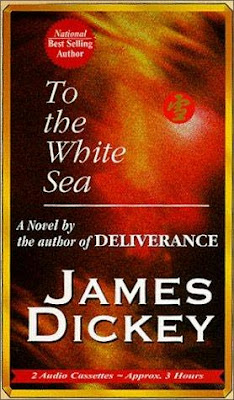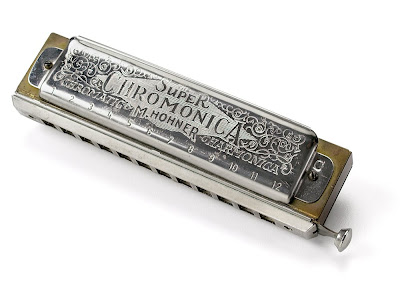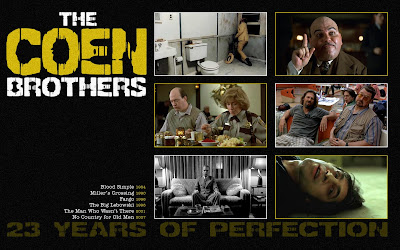No time to chat. Busy putting together the Top 100 loglines. Announcement will be made tomorrow (Monday) at 12:00pm noon Pacific Time. Here’s Roger with today’s review!
Genre: Thriller, Crime Noir
Premise: A serial killer nicknamed “Blitz” is targeting cops in different beats around London, inciting the ire of the sociopathic Detective Sergeant Brant and his notorious anti-87th Precinct Unit.
About: The screenplay comes from Nathan Parker (“Moon”), adapted from the novel of the same name by Irish noir writer, Ken Bruen. Jason Statham has agreed to play Brant, a crude, sociopathic cop while Paddy Considine will be playing Sergeant Porter Nash, an openly gay cop that works with the homophobic Brant. The director is Elliot Lester (“Love is a Drug”). Bruen also struck cinematic gold with “London Boulevard”, which is being adapted by Oscar winner William Monahan.
Writer: Nathan Parker (based on the novel by Ken Bruen)

To continue along this crime and noir vein without looking at a Ken Bruen project would be a disservice to all you readers jonesing for a crime fix. After all, ask any modern crime writer who they’re paying attention to in the world of crime fiction, and they’ll all point their fingers across the Atlantic at Ken Bruen.
If you like journeying to the Jim Thompson dark-side every now and then (and believe me, you’ll want to space ‘em out, these babies are grim ), look no further than his Jack Taylor novels.
But if you want a hit of pulp mayhem followed by rails of dysfunction, casual violence, and black humour, then may I suggest the anti-87th Precinct (did you know that Shane Black sustained himself on a diet of Ed McBain novels) Tom Brant novels?
Because “Blitz” is an adaptation of the novel of the same name, just one in a series of short ammo-clip novels that all started with Bruen’s “White Trilogy”.
So what’s the skinny on Brant?
Detective Sergeant Tom Brant is the UK’s answer to Vic Mackey. Or maybe it’s the other way around, because Brant was created four or five years before Mackey, and he sort of makes Vic look tame and unstylish in comparison.
When we first meet Brant, the Southeast London police shrink is attempting to counsel him about his “violent urges”. As a matter of principle, Brant suggests the doctor is gay, physically assaults him, gains the psychological edge, and rubs salt in the wound by ratting out the alcoholic doctor to a Detective Inspector (whilst impersonating the nebbish constable, PC McDonald).
All this he does with brutish style and Celtic panache. Brant is the type of good bad cop (or bad good cop) who sleeps with prostitutes turned informer, murders criminals who escape the system, drugs fellow police officers for sport, and isn’t above watching pitbulls tear apart a man for the purpose of revenge. In other words, Brant is just undiluted, sociopathic fun.

Did I also mention that Brant’s breakfast is always two Club Milks and a tea with two sugars, which he calls a Sid Vicious because in “Sid and Nancy” there’s “this scene where Gary Oldman, wrecked on every chemical known to man, shouts at his record company rep, who’d asked him what he wanted to drink, ‘Cup a tea, yah cunt, and two sugars.’”?
The Bad Lieutenant could take lessons from a man like Brant.
And more importantly, Jason Statham now has a role to sink his teeth into where he doesn’t have to take off his fucking shirt. I’m sorry I’m not sorry, ladies.
The 87th Precinct has an ensemble cast. Who are the rest of our London players?
There’s Chief Inspector Roberts, whose wife dies in a car accident at the beginning of our story. One of the things that Bruen seems to do so easily, and which Parker captures perfectly in the script adaptation, is that he smudges the lines between comedy and tragedy. How many writers can take a sequence where a man whose wife of decades has just died and capture the blunt shock, pity, sadness and humour that humans are privy to in the face of life trauma?
Just look at the scene where someone steals his wife’s urn. It’s fucking brutal, but you can’t help but laugh.
This script shifts and weaves and paints in so many emotional tones you can’t help but marvel at the deft character brush-strokes. A master has been at work, and we know it because it all seems so effortless.
Porter Nash is the handsome, openly gay sergeant who takes the reins from Brant. He’s a new arrival, but he earns the respect of the men and Brant because he’s just that good. There’s an uneasy partnership of necessity and respect between the two men, and it’s cool to watch them work together.
There’s WPC Falls, a black female investigator who is trying to find her place in the unit. She’s failed to make sergeant, and she copes by drinking hard and relapsing into substance abuse. Her favorite past-time in the hellish third act is robbing dealers. Ironically, she’s protective of a teenage punk with the British National Party, AKA Hitler Youth.

PC McDonald is the Superintendent’s star pupil, but more entertainingly, he’s the squad’s scapegoat. It’s fun to watch him blunder. It could also be argued that it’s fun to watch his sanity and resolve disappear as he struggles to stay above water in the real world of cops and murderers.
When The Blitz crashes the party, our notorious unit is cast further into limbo and they all must embrace their personal demons if they want to stop him.
Who is The Blitz?
He’s a hammer-wielding serial killer that targets cops.
It’s bad business, killing cops. Not only are you going to incite the ire of an entire police force, but you’ll have to go toe-to-toe with Brant, and you better be fucking committed to your art if you have to deal with a wild Celt with a badge.
Yet this is the perfect recipe for entertainment, as there aren’t many things more entertaining than watching two psychopaths drunkenly chase each other around London with bullets and hammers.
Add Brant’s seriously disturbed co-workers to the mix, and well, if the resulting “investigation” doesn’t entertain you than I don’t know what will.
How’s it go down, Rog?
Like a shot of Jameson, straight up.
These are good characters, and they have a combustive family dynamic where they support each other’s addictions and bad behavior. They take care of their own, and you can’t help but bond to these people when their life outside of police work crumbles around them.
Or maybe all they have is their police work, their job, and when threatened with “leave”, “time off”, or “vacation” (which any normal person would take considering the personal circumstances), they snarl their way back onto the beat or the chase because life outside of their job is too rough.
It’s too scary to have to face those demons alone.
And capturing The Blitz is exorcism, it’s a grail that justifies their loneliness, their anger, their sadness. Their brokenness.
Brant suffers from some old-fashioned Tennessee Williams blackouts. There’s a scene in the script where he does nothing but stare at a blank wall, his mind and heart numb.
Blank.
A human being whose fuse has burned down on both ends and in this rare moment of vulnerability, where we see something other than the sociopathic bull, we realize that Brant really is human.
He’s paying a price for his sins, and he pays it gladly.
If “Blitz” can be criticized, it’s that at its heart, the plot is pretty familiar territory. This coupled with its ensemble cast makes it feel like an arc or storyline off “The Shield” (or the novel and movie, “Red Dragon”) or any other television procedural.
But this baby is about the characters. It’ll be Jason Statham’s best role and it should appeal to the “Layer Cake” and crime noir crowd. It plays like a crime procedural force-fed through a wood-chipper with a stack of pulpy Raymond Chandler, Jim Thompson and Ed McBain novels.
Simply put, it’s lethal stuff.
[ ]What the hell did I just read?
[ ] barely kept my interest
[xx] worth the read
[ ] impressive
[ ] genius
What I learned: Shoot for ironic relationships between your characters. Blitz is full of ‘em. The most noticeable are the twin satellites of Brant and Nash. Brant is homophobic; Nash is openly gay. They have to work together. Instant conflict. PC Falls is black; yet she looks after a teenage Nazi. Instant depth. Brant kills with a badge; Blitz kills outside of the law. Instant battle of wills. Ironic relationships: They kick things up a notch.
We got very close to the big 1000 logline mark. Almost made it there! Considered leaving the contest open another couple of days to make it an even thousand. But I’m still happy with the turnout. Expect the official Top 100 post Monday at noon, pacific time.
Note: If you are a fan of both Scriptshadow and the Coen Brothers, I highly advise you not read the following review. There is a good chance you will never want to read Scriptshadow again. Please, I’m begging you, turn back now. You will hate me. As a result you will leave. Which means you won’t benefit from the future reviews and scripts that appear on the site. I know it’s tempting but I’m doing this for your own protection……..Still here? Okay, I warned you.
Genre: Drama
Premise: An American gunner for a B-29 bomber squad crash lands in Tokyo during World 2 and must find a way to escape alive.
About: This finished number 20 on the Scriptshadow Reader Top 25 List, which is pretty impressive when you consider it hadn’t been officially mentioned on the site. Joel and Ethan Coen adapted the novel over a decade ago, and many consider it to be one of the best screenplays not yet produced. James Dickey, who wrote the novel the script was adapted from, also wrote “Deliverance.”
Writers: Joel and Ethan Coen (based on the novel by James Dickey)

Remember the large group of friends you used to hang out with in high school and college? For the most part, everybody got along. Being in a large group of people who just “get you” is probably one of the safest most comforting feelings you can have in life. But in those groups, there’s always that one person, that one guy or girl you just don’t see eye to eye with. Both of you know it. Both of you do your best to work around it. But because there is absolutely zero crossover in your interests, zero crossover in your sense of humor, because there seemingly isn’t a single thing in life that the two of you agree on, all you can do is tolerate each other and not let your dislike of one another screw up the group dynamic.
That person for me was Eli. I hated Eli. And it was clear he didn’t like me either. I couldn’t even tell you the reasons why I didn’t like Eli. He was just one of those people that rubbed you the wrong way. So deep was our dislike for each other, that if ever a segment of the group couldn’t make it somewhere, I’d have to check to see how many others were coming. If it was five people and Eli, I could handle it. But once it got down to four or three? Which meant Eli and I would actually have to talk? No thank you. I was out. And I’m certain he did the same. Over time, Eli and I basically became experts at hating each other.
Well when you go off into the real world and grow up a bit, you look back at things and you think, “Maybe I could’ve approached that better.” “Maybe I helped contribute to the misunderstandings just as much as he did.” You gain some perspective, and wish you would’ve tried harder.
So a couple of years out of college and a good six years since I’d last seen Eli, I flew in for one of my friends’ bachelor parties. The whole group was back together again, and there was Eli, grown up, matured, nice, a seemingly different man than the character I remembered. I knew right then that we were going to be okay, that we could work things out.
Eli also had with him a harmonica, which he was busting out occasionally, playing for people. And he was actually quite good. Better yet, it was the perfect conversation piece. At the time, one of my favorite bands was Blues Traveler, which, for those of you unfamiliar with them, has a lead singer whose trademark is his unprecedented harmonica mastery. It was the perfect topic to bring us together. I was certain that if I could just get Eli alone, we’d end up talking all night, forgetting every issue we ever had with each other, and becoming better friends than Selena Gomez and Demi Lavato.
About an hour later, I saw Eli getting a drink and decided to strike. I approached him with a big smile and asked him what he’d been up to. There was still a trace of distance in his voice, but I focused on the positive. At least he was engaging me. Eli told me he had gone into real estate where he was quickly becoming a force. He also recently asked his girlfriend to marry him. Things were clearly going well for him. When there was a brief potentially awkward pause, I knew it was the perfect time to bring up the harmonica. “So how long have you been playing?” I asked. “About five years now,” he said. “I heard you playing earlier. You’re really good.” “Thanks.” “What kind of stuff do you play?” “I like a bunch of different kinds of music but mainly blues.” It was exactly the way I had planned it in my head. I threw him the moneyball.
“I’m a huge fan of Blues Traveler. I don’t know anyone who can play a harmonica like that guy.” And he paused, looked at me for a moment. I noticed his face becoming a deep shade of red. For the briefest of moments, he actually looked like he was going to kill me. Though I’ll never remember exactly how he said it, Eli responded to me with something like: “Blues Traveler is a fucking joke. I hate John Popper [the lead singer]. He’s everything that’s wrong with the harmonica. They’re a piece of shit pop-group that fucked up everything that’s pure about music. I hate them with a passion and wish that dude would die.”
I stood there for what I’m pretty sure was six years of silence. I then offered a forced smile, turned, and walked away. I have not spoken to Eli since, nor do I ever plan on speaking to Eli again. That experience taught me a profound life lesson: Two forces that aren’t meant to be will never be. Time will pass. You can keep trying. But you’ll never like each other. This is the reason why I know I will never like the Coen Brothers.
The Coen Brothers would probably never be as rude as Eli, but just like the harmonically angry one, I don’t get them. I just don’t. Everything they do exists on a plane outside of what I’m willing to consider entertainment. I got through ten pages of “A Serious Man,” and thought it was a rambling incohesive piece of shit. Burn After Reading? A desperate attempt to grab A-list actors by creating a stupid story with overtly outrageous characters. More like Burn Before Reading. Ditto for “O Brother Where Art Thou.” In fact, that’s how they seem to approach most of their movies. And don’t get me started about No Country For Old Men, which, based on a novel or not, decided to deprive the audience of a fairly important piece of information: THE ACTUAL ENDING. I couldn’t even tell you what they did for the seven years previous to that. Didn’t they remake The Ladykillers?

Look, I’m not going to sit here and tell you that the Coens aren’t talented filmmakers. They clearly have a vision – a unique eye, and they seem to have a pretty good grasp on the old “chase the guy with the bag of money” device. But I truly hate their writing. I will never ever get it.
To The White Sea is my Eli at the bachelor party moment for the Coens. I’ve heard about how good this script is many times, but when it scored so highly on the Reader List, I finally said, “I have to give this a shot.” So Wednesday I approached To The White Sea at the party, and had a conversation. Would the script prove my theory wrong? Or would I continue to lump the Coens in with Eli?

It’s March of 1945, roughly five months before the end of World War 2. A guy named “Muldrow” is supposedly the best B-29 gunner in his squadron. After we’re told a few times how awesome he is, he’s off on a mission to blanket Tokyo with more explosions than a Michael Bay movie (not including Bad Boys 2). As they’re flying along, their plane gets hit, he gets ejected, and falls, I think, right outside Tokyo. This coincides with the ending of all dialogue in the film, which I was really excited about, since it made a 90 page screenplay read like it was 180.
For reasons I’m still trying to grasp, we inexplicably flashback to Muldrow in Alaska(?) with a bunch of snow dogs. Neither Cuba Gooding Jr. or Paul Walker is nearby, so when Muldrow’s hands get a little chilly, he slices one of the dogs in half and shoves his hands inside to keep warm. I don’t know about you but I love me some dog killers. I was really warming up to this character.
Back in the present, Michael Vick wakes up, seemingly okay after the fall, and must now find a way out of Tokyo without being seen or killed. A few pages after the wonderful dog murdering scene, he slices the throat of an innocent civilian and steals his clothes and hat, which he then hides under so people won’t see that he’s American.
He then wanders through Tokyo and its outskirts – though it’s never clear to me where he’s planning to go, as the last time I checked, Japan was an island. In the draft I read, there were occasional pages that had been omitted. And I suppose this could’ve been explained in one of them, but I considered these deleted pages to be more a gift from God, a tiny favor from him to shorten my read. But even God himself could only do so much. Every endless page was hell. In fact, I started to wonder who was going to survive longer. Me or this character.
Muldrow continues to sneak around Japan, eventually finding his way into a house and murdering an old blind man. He also bludgeons and beats to death a goat, rips apart some birds, and if that isn’t enough animal death for you, a cute cub bear gets torn apart later. By this point I had broken out the pom-poms, such was my rooting interest for this wonderful man. Unfortunately, Muldrow never finds that deaf school of children to massacre. I guess we can always hope for a sequel.
There’s a big ironic moment when American bombers fly over and start bombing the very city he now finds himself in. Except I was less focused on the irony and more concerned about the bomber’s errant aim. I knew if they got him, the script would be over. Or, at least, I hoped it would. But alas, the idiots kept missing. I guess they shoulda hired Michael Bay.

Even with it being only a couple of days since I read the script, I can’t really remember the end, other than I was bored to tears. I do remember him getting captured though, I think. And maybe almost dying. Alas, for those kinds of details you’ll have to carve out four hours of free time for yourself. Cause yes, it takes that long to read. (I know forgotten Egyptian cave languages that read faster than this)
Um, is there a movie in here? I suppose so, though I thought it woulda been way cooler if it was about an army official crashing in Hiroshima who had knowledge that the atom bomb was about to be dropped there in an hour or something. Now that’s a movie I’d wanna see. Hmm, maybe I’ll pitch it to Eli.
[x}What the hell did I just read?
[ ] barely kept my interest
[ ] worth the read
[ ] impressive
[ ] genius
What I learned: Having your main character kill a lot of animals will make him extremely likable. Kill as many animals as possible always in scripts. Puppies, chipmunks, bunnies, and baby deer are preferable.
In the spirit of fairness, I decided to give a friend of mine, Aaron Coffman, who’s a great screenwriter himself and a huge fan of To The White Sea, a chance to offer his thoughts on the script. Obviously, he’s wrong, but I’ll let him talk anyway. :)
When Carson first hinted that TO THE WHITE SEA may receive a ‘trash’ rating, I politely demanded the chance to offer a counter review, for I, like many of you, rather enjoyed the script.
A couple years ago, when a friend sent me the Coen Brother’s adaptation of the James Dickey novel, I tore into it, smiling at the sandpapered words first spoken by a hardened Colonel:
Fire. We are going to bring it to him.
Like the opening of PATTON, a commanding officer stands before his men, issuing orders that not only asks them to be absolutely brutal to the enemy, but to their enemy’s families and to their way of life. He’s not just asking his men to make the other poor bastard die for his country, he’s demanding they mutilate that country in the process.
…we’re going to put it in his dreams. Whatever heaven he’s hoping for, we’re fixing to make a hell out of it… no ammo, no gunners. All bombs. All payload. All fire.
And so begins TO THE WHITE SEA.
The opening image of a sea bird, flying against the bluest of skies, suddenly overtaken by the thunderous roar of a B-29 speaks volumes about what the script will set out to achieve. The constant battle between nature and man coarses throughout the eighty-nine page script.
The year is 1945. The war in the pacific is violently inching closer to an end. We meet Muldrow, the tail-gunner of a B-29, preparing for the hunt — or in this case, a bombing raid over Tokyo. The crews are told that in a few days the wooden city will be firebombed, but before that, regular bombs will have to do.
It’s on the great hunt that Muldrow’s plane is shot down and he is the lone surivor to jump from the plane’s gutted husk and make it safely to the ground. The only problem is that he’s in Tokyo, and in a matter days the entire place will be hit with white phosphorous and napalm.
And here is where the script started to win me over. In any other circumstance the plot of the film would use the firebombing as a ticking-clock. The script would become about Muldrow trying to escape before the American bombers return. He’d surely have to kidnap a Japanese citizen, but by the end of it they’d come to understand each other, and the Japanese captive would sacrifice himself so that Muldrow could flee to safety.
But not here. After spending the night in a construction vehicle, Muldrow starts North, where he can escape into the Aleutians, and by page thirty-four, Tokyo is on fire. Clearly this script isn’t as interested in standard conventions. There will be no Japanese captive with whom he can share stories of his past; nor will his captive-turned-friend be around to save his life.
Through a series of short flashbacks, done with some of the more interestingly executed transitions I’ve read, we learn about Muldrow’s past. We see him, years before, steering sled dogs through the Alaskan wilderness. When he tries to untie a frozen knot, Muldrow loses his gloves in the snow, and with the night quickly approaching, and unable to start a fire with his frozen hands, Muldow takes one of the sled dogs behind a mound, slices it open, and sticks his hands inside for warmth.
It is a scene that not only develops who Muldrow is as a character, but also the overall theme as well. Through his actions we see that Muldrow can and will to do whatever it takes to survive, and do it without any hesitation. The scene also begins to establish the thematic element of caged animals. Much like in RAGING BULL, when Jake LaMotta is thrown in prison and begins to bash his head against the cement wall, screaming that he’s an animal, here to we start to get a feeling that Muldrow himself has been caged, and that now the animal has been set free.
As Muldrow makes his escape, many might be put off by brutality in which Muldrow kills. However, I would counter by saying each murder allows him to find a way to survive.
He kills a construction worker for his clothes so that he can get out of his flight suit. During the firebombing of Tokyo he kills a man his size so that he can get out of his combat boots which clearly would give him away.
In one of my favorite sequences of the script, Muldrow kills a man who feeds a flock of swan in a pool outside a house. The murder seems unnecessary at first because even though he does eat the swan (the one which fought back), it’s unclear why he clubs a handful of the birds to death. We see him plucking the feathers, shoving them into a bag and then setting out again, and yet the question as to what he’s up to isn’t made clear. Later, when he discovers a blind man’s house, he waits for the caregiver to leave, then sneaks in. He quickly goes through the house, searching for something, ignoring the blind man. The blind man, realizing an intruder is in the house grabs a blade and nearly kills Muldrow before he himself is dispatched rather violently.
It’s the first time Muldrow has come upon a person who he doesn’t kill on sight, simply because the man can do him no harm. He can’t tell the authorities that Muldrow is an American. It’s only after the man attacks that Muldrow kills him. The sequence comes to an end as we realize why Muldrow came into the house. He uses a needle and thread to sew the swan feathers into his jacket to add insulation. It’s going to be cold on his trip, and again survival drives him.
To cover his tracks Muldrow sets the house on fire, but stops to let a song bird out of it’s cage. Once again the use of caged animals comes into play. Unlike Muldrow, though, the song bird flaps about the burning room only to return to its cage to await certain death.
When a small tribe takes him in, the looming threat that he might have to kill them all hangs heavy over the sequence and drives up the tension. During a celebration, two caged bear cubs are brought before Muldrow. The villagers kill one in a ritualistic manner. Later that night, on his way out of the village, Muldrow kills the man in charge, then sets the remaining cub free. It’s an interesting moment because we’re left to wonder if Muldrow did so to cover his tracks, or if he felt an animalistic need to free the caged bear. He doesn’t kill the entire village, which seems like something he’d do if his motive was to cover his tracks. Instead, he kills the man who allowed the bear cub to be slaughtered in its cage. Once the murder has occurred, and the bear has been set free, Muldrow’s own sense of survival kicks in and he murders several more tribe members on the edge of town to make it appear as though the bear cub was responsible.
[**major spoiler below**]
When he finally makes it north, Muldrow encounters another man, who shows him his prized hawks. During a trek through the forest, as the hawk flies high above him, Muldrow is shot and killed by soldiers as they stalk through the snow. It’s not made clear if they were after him specifically, but they’re dressed in white camo to disguise them in the snow, and we get the feeling that they too were on a hunt.
As Muldrow lies dying, he watches the hawk above him, in the blue sky, like the bird we saw in the first moments of the script. Muldrow’s voice echos the words:
I was in the place I tried to get. I was in it and had it. And will be everywhere in it from now on.
And so it is that Muldrow, once a caged animal, returns to nature from which he was born.
What I learned: This isn’t going to be everyone’s cup of tea. This is clearly written by two people who have never really been interested in the standard conventions of a Hollywood story. The fact that the font is in Times New Roman will make some feel as though they’re reading a book, however, I think writer’s can take some important things from it. Without dialogue or a high concept plot to push the story forward, the writer’s must focus on theme. Seeing such a thing on display here might help you incorporate that element into your own scripts in a more powerful way.
Genre: Noir sci-fiPremise: A mute bruiser living in futuristic Germany goes on a desperate search for his missing girlfriend. Along the way, he learns about her secret life.
About: Duncan Jones is the recently announced director of the number one reader rated script on Scriptshadow, Source Code. You may have seen ads for his eerie indie sci-fi film “Moon” this summer, a movie I’m desperately awaiting on DVD. “Mute” was supposed to be Jones’ follow-up to that effort before he was offered Source Code, which I’m sure he chose in part because of certain financial incentives – mainly that there were some. Jones is the son of David Bowie.
Writers: Mike Johnson & Duncan Jones
Details: 2006 draft = 103 pages. 2009 draft = 109 pages.

So I’m doing something a little different today. Instead of a regular review, I’m going to review two drafts of the same script. The last time I did this was back during the Moneyball fiasco, and I still feel bad about manhandling the Soderbergh draft (though I contend he ruined a solid script). Luckily this time around, we don’t have to pit any writers against each other. Both of Mute’s drafts were written by Duncan and his partner, Mike Johnson. After perusing the first five pages, it appears the two drafts are shockingly different, but if you continue on, you’ll find that they’re almost exactly the same.
Duncan Jones is quoted as saying that he chose Source Code over his own project, Mute, because Mute was a “hard sell.” After reading it, I’m thinking that might be the understatement of the century. This is a very challenging and alienating script. At times it’s as smooth as a baby’s bottom, and at others as rough as a piece of sandpaper. Mute is one of those personal projects that probably won’t appeal to anyone outside a tiny niche audience. It appears that Jones knows this, and is perfectly okay with it. “Moon” was never going to light up the box office either, yet it already has a rabid fanbase. The question is, does Mute satisfy on any level? Man, that’s a really hard question to answer.
Believe it or not, the 2006 draft is set in present day Berlin and plays out like a very straightforward drama. It’s only when you pick up the 2009 draft and see “2046” in the slugline that you realize how drastically Jones decided to change his story. Or did he? Keep reading and you’ll find that most scenes have stayed exactly the same, leading me to realize that the only change Jones made was a visual one. From a directing standpoint, this new Blade Runner vibe will surely please the hardcore sci-fi demographic. But what about the story? How did the new futuristic setting change that? Sadly, it doesn’t at all. And that’s a shame.
Duncan Jones’ previous film, “Moon.”
“Mute” centers on a brutish 40 year old man named Leo, who lost his ability to speak in a childhood boating accident. The cautious and perceptive Leo lives in Germany now, where he’s fallen in love with a striking Afghan woman named Naadirah. The two are inseparable, both working as waiters at a sketchy local club.
In another part of town, an obnoxious American named Cactus Bill is looking to acquire a fake pair of passports for his foreign wife and daughter so he can finally go home to the United States. Although it was never quite clear to me how Bill got stuck in Germany, he seems hell-bent on getting out. His journey is complicated, however, by the debt he owes Germany’s large Russian crime syndicate, as well as the suspicious behavior of his closest confidant, who may or may not be a pedophile targeting Bill’s daugther.
Back in Leo’s world, he wakes up to find that Naadirah is gone. At first he assumes she’s at work, but when she doesn’t answer a series of texts, he becomes suspicious. An investigation turns into a slow and purposeful pursuit, as he does a toned down imitation of Liam Neeson, and raises hell in future Berlin’s shady underbelly. Along the way, he finds out a shocking secret about her that changes everything.
Mute bounces back and forth between Leo’s pursuit and Cactus Bill waiting for his passports. And this, I believe, is where Mute really falters. The story is called Mute. Leo is the mute. Yet we spend what seems like an endless amount of time watching Cactus Bill and his assistant sit around and talk about nothing. Their storyline is so passive compared to Leo’s, that it’s really a labor to get through. They’re essentially waiting around for passports to be made. I wanted them to do something, to go after something. But the story doesn’t seem to know what to do with them. They’re just…there.
The other major problem I had was that Leo’s disability didn’t play into the story in any way. His being mute didn’t help him in any situations, nor did it hurt him. Every conversation he got into would be hampered because of his inability to talk, but both sides easily worked around it. Imagine a film like Memento, where Guy Pearce’s memory impairment doesn’t affect him. Where it’s not really an issue. I kept asking, “Why does this main character have to be a mute?” What was the point?
Duncan may be smarter than me because the answer to that question could lie more in the production of the film than the screenplay. Actors love a challenge, and who wouldn’t want to play someone who doesn’t speak the entire film? Who can only communicate with their eyes and their facial expressions? Are you kidding me? I can hear Johnny Depp running to his phone right now.
There seem to be a lot of images that Jones wants to capture here. He writes about subtle moments – the way they appear, the way they feel. In those brief passages, Mute really shines. Jones clearly understands what he wants to do with the film visually. In fact, this will probably be one of the coolest fucking trailers ever to hit the geek community. The film nerds that have unopened Blade Runner DVDs, Blade Runner Special Edition DVDs, Blade Runner Director’s Cut DVDs, even Blade Runner Super Edition HD-DVDs, will be swimming in a soupy ecstasy of barely-lit futuristic noir til they can’t tell themselves from their shadows. This film will no doubt look awesome. But if Jones doesn’t figure out how to integrate his main character’s handicap into the film, or do something more interesting with the Cactus Bill storyline, or get some urgency behind the story, I fear this will only please the kind of people who know the names of the world’s top ten cinematographers.
[ ] What the hell did I just read?
[x] barely kept my interest
[ ] worth the read
[ ] impressive
[ ] genius
What I learned: To me, this was another reminder of the mine-field you step into whenever you have a passive character. Cactus Bill has a clear goal – get the passports for his daughter and wife, but for 90% of the time we’re with him, he’s not doing anything about it. He’s just hanging out and talking to people. If there’s nothing going on there, nothing that your character is actively pursuing, we’re going to get bored fast. Now as you’ve seen in previous “what I learned sections,” I by no means think a passive character is a death sentence, but it’s best to steer clear of them unless you have a damn good reason. Because they’re a lot harder to make interesting than active characters.

So as many of you are probably aware, the 2009 Black List is coming soon. On December 11th to be exact. And now they have a website to tantalize and tempt us until that forever-away date arrives.
A few reasons why you might want to check it out. First, they have a mailing list which I hear will be announcing some things about the new directions the list is going in. Second, there’s a blog that will keep you updated on all Black List related info. And third, there’s an opportunity for some of you artists to be a part of Black List history, as they’re looking for someone to come up with the cover art for this year’s list. If you’re interested in submitting, head over to that section of that site.
Can’t wait for this list to finally hit!






